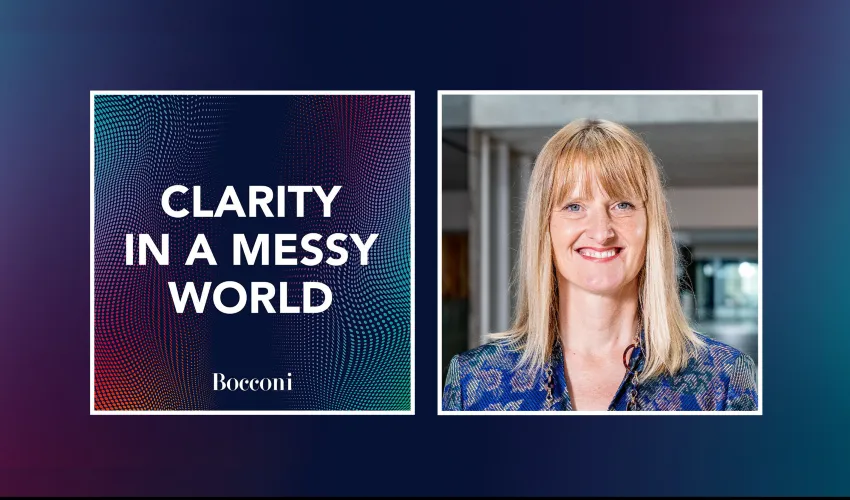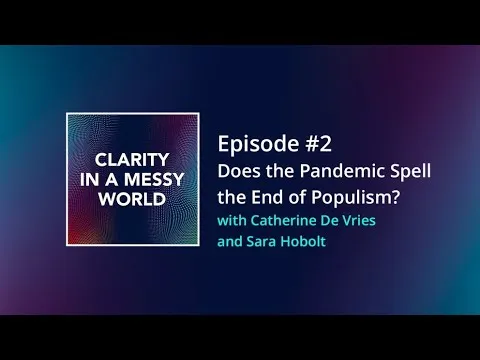
We Have Yet to Hear the Last Word on Populism
The rise of populist parties had been disrupting political systems across the world for decades, until the COVID crisis. The pandemic seems to have changed everything again, with voters turning back to traditional actors they perceive as more competent and reliable. But there is more to it than that, says Catherine De Vries, Professor of European Politics at Bocconi, in the second episode of the Clarity in a Messy World podcast series.
"I would really urge us to be very careful with that type of conclusion," she says, "We've not necessarily seen all the fallout of the crisis and if the recovery turns out to be long or unequal, that will generate a lot of grievances and will provide an opportunity for populists to come back and mobilize those grievances, like they've done in the past."
In the podcast, Professor De Vries appears with fellow guest Professor Sara Hobolt (London School of Economics), her co-author in the recent Political Entrepreneurs: The Rise of Challenger Parties (Princeton University Press).
The core component of populism, Prof. De Vries says is "the vision of society as separated into two homogeneous, conflictual groups: the pure people and the corrupt elite - and that politics should become an expression of the general will of these pure people."
"Populism in itself is not necessarily anti-democratic," she also says. "It is more anti-elite than anti-democratic, but when it gets combined with other positions, like nativism or xenophobic nationalism, especially among rightwing populist parties, we do think that some of the liberal norms are being put under pressure."
Clarity in a Messy World, hosted by David W. Callahan, is the Bocconi podcast that looks at the causes behind the most confounding issues of our time. You can follow the podcast on Apple Podcasts, Google Podcasts, Spotify, Spreaker, and YouTube.
Does the Pandemic Spell the End of Populism? I Podcast #2
